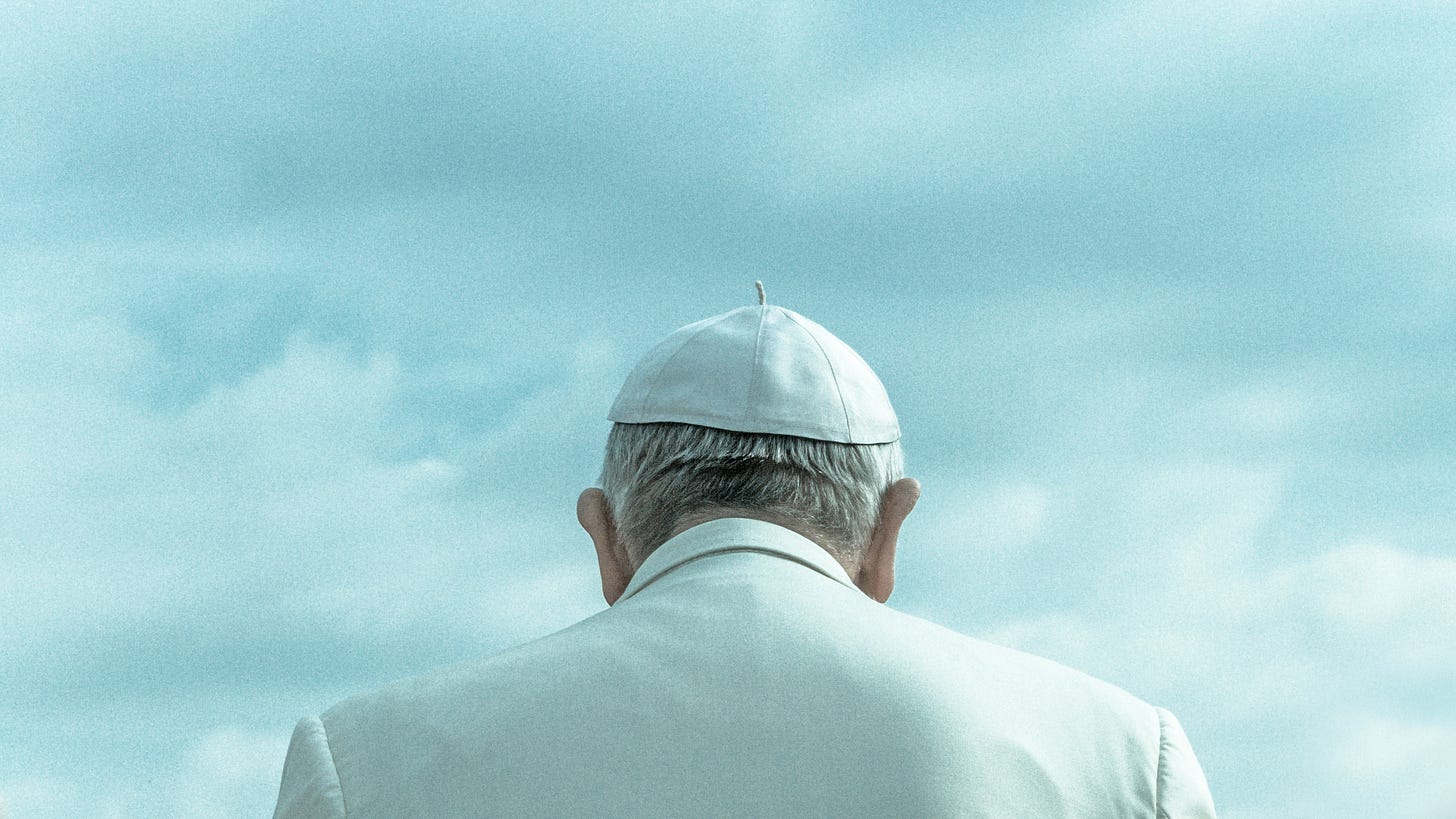What is Synodality?
And how would we cope, relying only on grey men who merely echo whatever Pope Francis says?
Bishop Nicholas Gilbert Erskine Hudson (65) presented a concluding reflection on the second session of the XVI Ordinary General Assembly of the Synod of Bishops (which includes many participants who aren’t bishops), commonly referred to as the Synod on Synodality.
Hudson’s reflection is wet, flaccid, and devoid of any point worth making. It leaves one with the impression that he has never had an original thought in his entire life.
Hudson completed his high school studies at the Jesuit Wimbledon College and then studied at Jesus College, Cambridge, earning a masters degree in history. From 1981 to 1987, he trained for the priesthood at the Venerable English College in Rome, studying at the Pontifical Gregorian University, where he obtained a bachelors degree and a licentiate in dogmatic theology. He was ordained a priest for the Archdiocese of Southwark on 19 July 1986.
He served as assistant pastor in the parish of Canterbury from 1987 to 1991, then spent a year at the Catholic University of Louvain for catechetical studies. From 1993 to 2000, he was director of the Christian Education Centre of the Archdiocese of Southwark. In July 1993, he was appointed to the Council of Consultors of that archdiocese. In September 2000, he became vice rector of the Venerable English College, and then served as rector from January 2004 to September 2013.
It was during this period that I first became aware of him, as my then parish priest, Father Andrew Headon, was appointed vice-rector. I visited the VEC (as the Venerable English College in Rome is known) on several occasions during that time and continued to visit over the years, developing friendships with a number of seminarians training there.
Rectorship of a seminary tends to be an indicator of impending episcopacy, so it was no surprise when Hudson was named an auxiliary bishop of Westminster and titular bishop of Sanctus Germanus on 31 March 2014 by Pope Francis. However, this appointment was met with some dismay by my contacts, who recognised him as favouring the "Lavender Mafia" at the VEC and ruling with a liberal, though iron, rod.
For example, in 2005, he prohibited students from wearing their cassocks while waiting in line to enter St. Peter’s to pray before John Paul II’s body. Yet he strolled past them all in full monsignorial attire, bypassing the queue with a special privilege. So much for "synodality" — his brand of clerical authority rings more as "liberal dictatorship", where his philosophy seems to be, "You’re free to do exactly as I tell you".
In his "reflection" Bishop Hudson carefully avoids any original insight, offers no comfort for the faithful, and fails to provide hope, simply ticking the correct boxes of papal deference and employing Vatican newspeak. He even makes basic mistakes in canonical geography.
One of the main aims of this synod was to shift doctrinal authority to the episcopal conferences. This move was defeated by African bishops who were present.
Hudson’s lack of presence is even more concerning, as such a shift, if successful, would mean that the Catholic Church in England could make its own decisions on various matters. How would we cope, relying only on grey men who merely echo whatever Pope Francis says, with no understanding of ecclesiology or passion for the Gospel?
In his reflection, Bishop Hudson dutifully references both Pope Francis and Cardinal Grech. Parroting Grech, he claims that this stage of the synod “was reaping the fruits which this [three-year] journey had borne.” This is typical of the exaggerated hype surrounding this process.
In numerous interviews, Synod general secretary Cardinal Mario Grech and Synod relator general Cardinal Jean-Claude Hollerich, S.J., insisted that, thanks to the “synodal experience,” the “People of God are on the move”—as if they hadn’t been "on the move" since the first Pentecost; as if the Church had been stalled and spinning its wheels since the Second Vatican Council.
In reality, one can point to any number of World Youth Days or synods with more impact on the Church. The failure of this process is evident in the final document’s lack of progress on issues like female diaconal ordination and delegation of papal authority to bishops' conferences—a move which, as Gavin has pointed out on Catholic Unscripted, would open a Pandora’s box it would be very difficult to close.
This devolution rhetoric contrasts sharply with Pope Francis's undeniably authoritarian governance style, evident through his prolific use of the motu proprio. Francis has issued an extraordinary 55 motu proprios since the beginning of his papacy in 2013. By contrast, Pope John Paul II issued about 30 motu proprios during his papacy from 1978 to 2005.
Of course, Bishop Hudson makes no mention of any of these essential issues. Instead, he tells us the whole event was marked by “a spirituality of listening,” adding that “the Synod confirmed the centrality of synodality in evangelisation by stating not only that to evangelise is ‘the essential mission of the Church’, but also that ‘synodality and mission are intimately linked: mission illuminates synodality and synodality spurs to mission.’”
Yet no one knows what this means! As Larry Chapp reports, in an informal exchange with Synod participants, the pope was asked, point-blank, to provide a succinct definition of "synodality", and he couldn’t—or wouldn’t—do so. How, then, is Bishop Hudson competent to pontificate about the wonders of synodality when even the man who introduced the concept can’t explain it?
Hudson states: “There was frequent talk of a synodality of the heart; a sense that ‘synodality is primarily a spiritual disposition.’” (FD 40).
Personally, I am so sick of "synodality", that it makes me think only of vomit.
Bishop Hudson’s reflection carefully misses the mark, ignoring the true nature of the synod, and instead tries to focus our attention on feel-good fluff. It’s ghastly, dishonest, and I’m not buying it.
God deliver us from these men!




